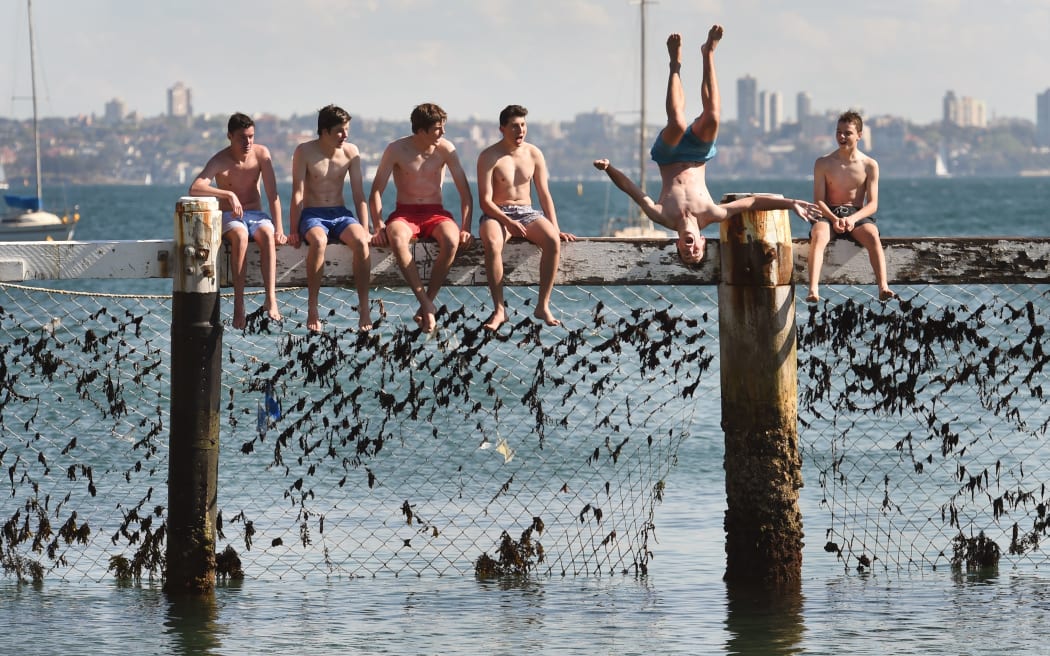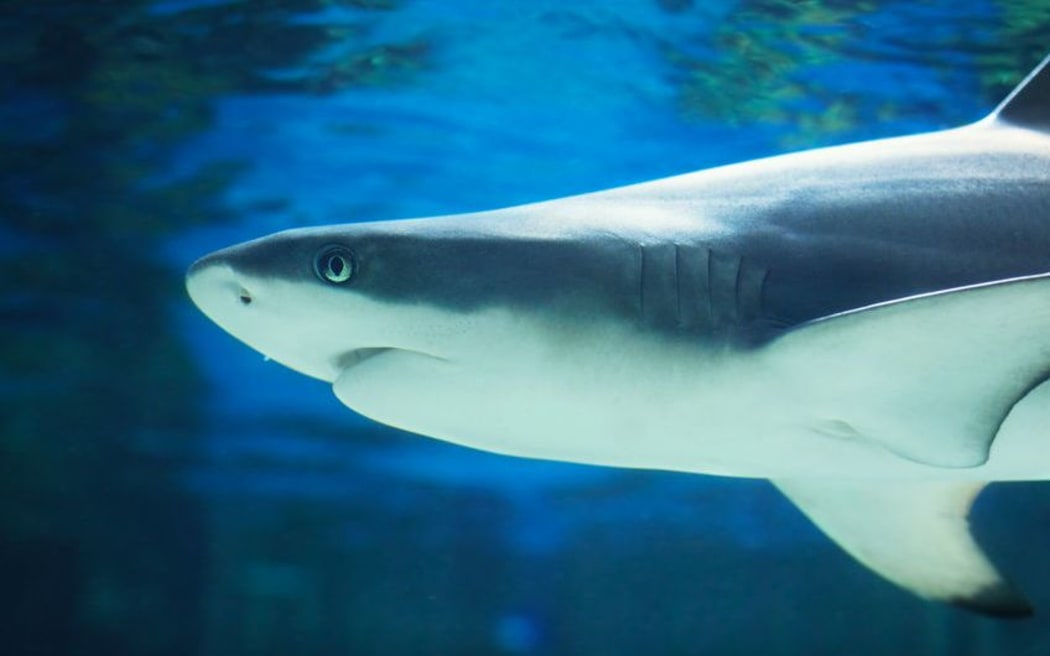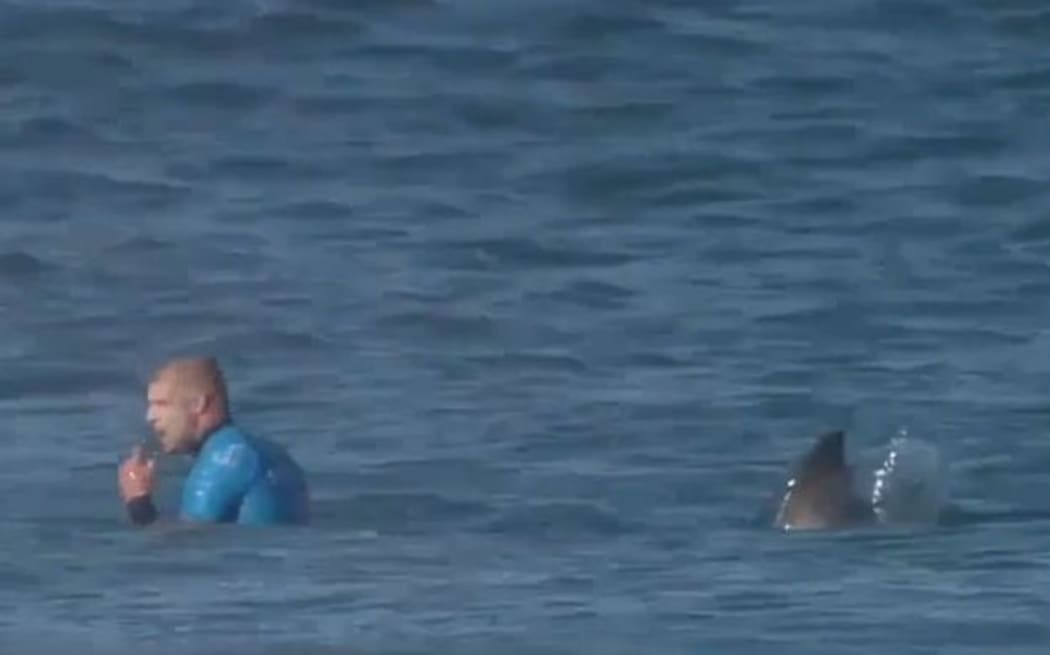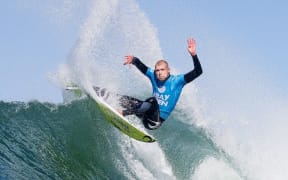Shark experts from around the world have gathered in Australia to look at technologies that could help keep swimmers safe from deadly attacks.

Children play on a shark net at Little Manly Cove, Sydney, as shark experts gather at a summit in the city. Photo: AFP
Dozens of leading international scientists have been at the Sydney summit, called by the New South Wales government after a number of attacks and sightings in the state this year.
There have been 13 attacks and one fatality in New South Wales so far this year, up from three last year.
David Wright, mayor and long time resident of allina in the north of the state, has first-hand knowledge of the danger of sharks.
This year alone he has seen a number of attacks at local beaches, including a fatal attack by a great white on 41-year-old Japanese surfer Tadashi Nakahara.
"The shark took the back of his board and his two legs," Mr Wright told the ABC's AM programme.
He said there was a growing problem caused by increasing numbers of sharks.
"The shark experts themselves have been up here and they've never seen an aggregation of bait fish, shark, whales and dolphins in their experience."
Mr Wright is part of the local Shark Advisory Group, which was instrumental in getting the NSW government to hold the summit.
The 70 experts at the meeting are discussing results of an independent review commissioned by the NSW government into shark deterrent technologies that would be discussed and potentially trialled.

Photo: 123RF
Options included fencing off beaches with electric cables, physical and visual barriers, sonar technologies and satellite and acoustic technology, or tagging and real-time tracking of tagged sharks.
But the review found that only one deterrent - a shark spotting program - was suitable for immediate trial.
The sonar technology identified in the review was the Cleverbuoy system, described as a "smart ocean buoy that detects sharks and alerts lifeguards on the beach".
Yesterday the meeting heard from a marine biologist who has been trying to develop environmentally friendly shark repellents at open-ocean beaches in South Africa.
Geremy Cliff said he was looking at replacing net and drum lines with electromagnetic repellents that covered large areas. "We have pursued electrical shark repellents but now we're looking at trying to establish electrical shark cables which could protect larger areas, but we're not quite there yet," he said.
Earlier this year Australian surfer Mick Fanning survived an attack at Jeffrey's Bay in South Africa, fighting off the predator with his fists before safely returning to shore.

Mick Fanning survived a shark attack in South Africa in July. Photo: WSL
The summit is taking place as a new study reveals that there is little public support in the north of New South Wales for killing sharks as a method to reduce shark attacks in the area.
The research by the University of Sydney also revealed that many people want more research into human-shark interactions.
"A majority of Ballina residents want the government to educate the public about human-shark encounters, invest in non-lethal technology and back more research into human-shark encounters," head of the research study Dr Christopher Neff said.
NSW Minister for Lands and Water, Niall Blair, said making beaches safer was a top priority for the state government.
"We know that we've had a spike [of attacks] on the north coast New South Wales recently and we wanted to know if that was a one off occurrence or if this is something we should be concerned about for the future."
- RNZ / ABC / BBC





